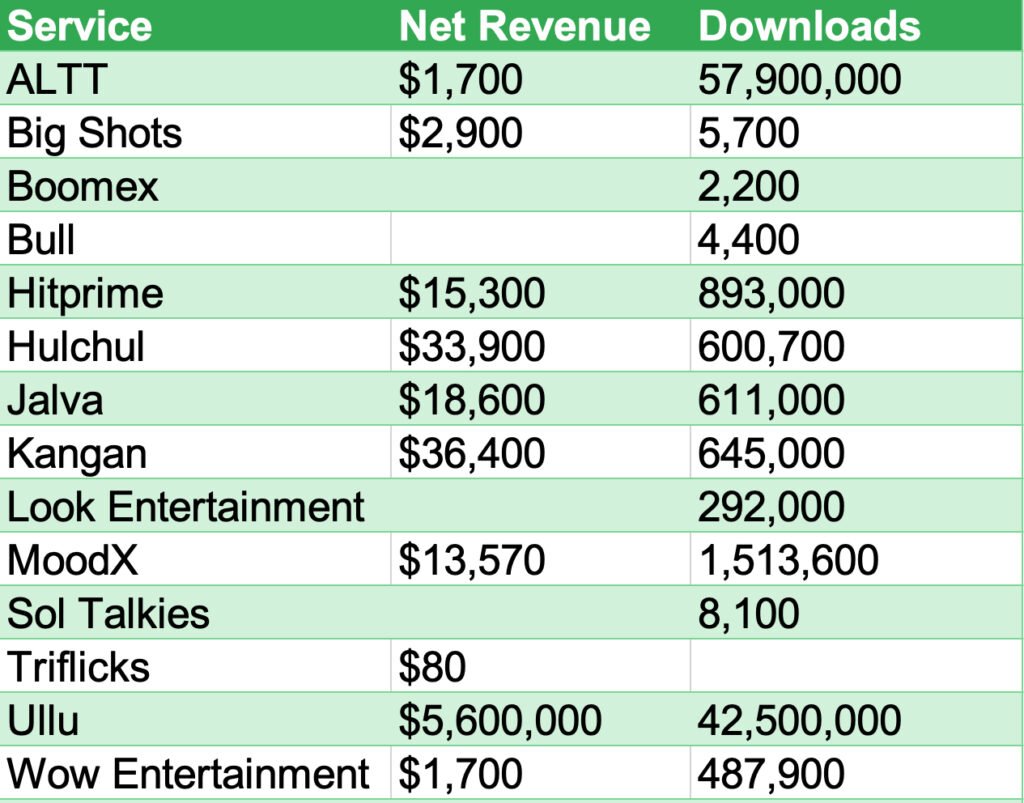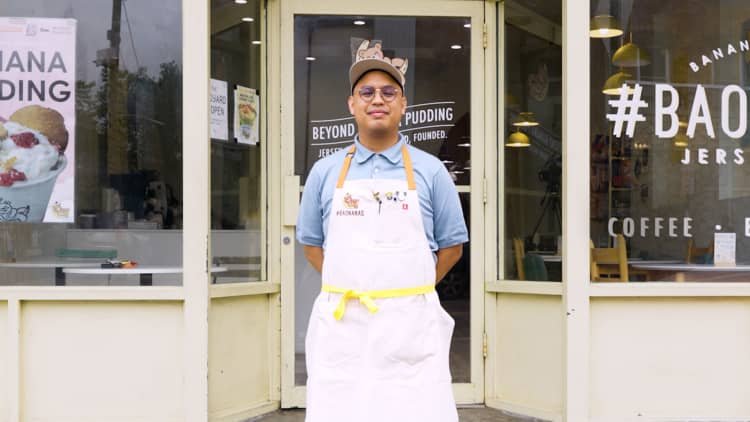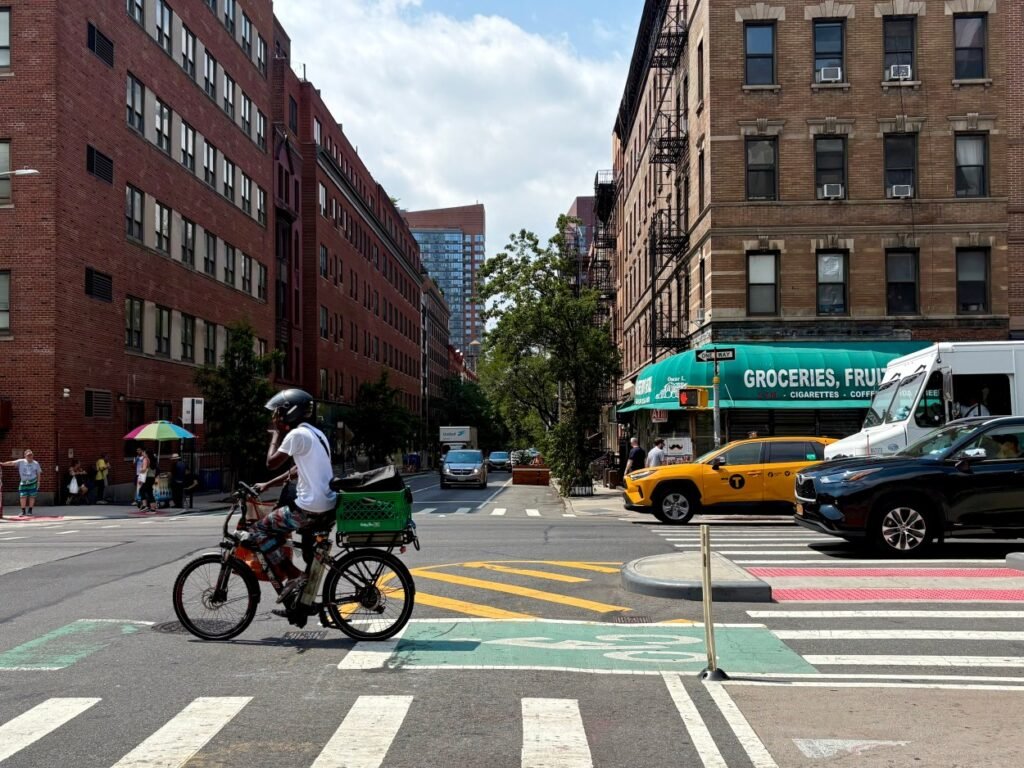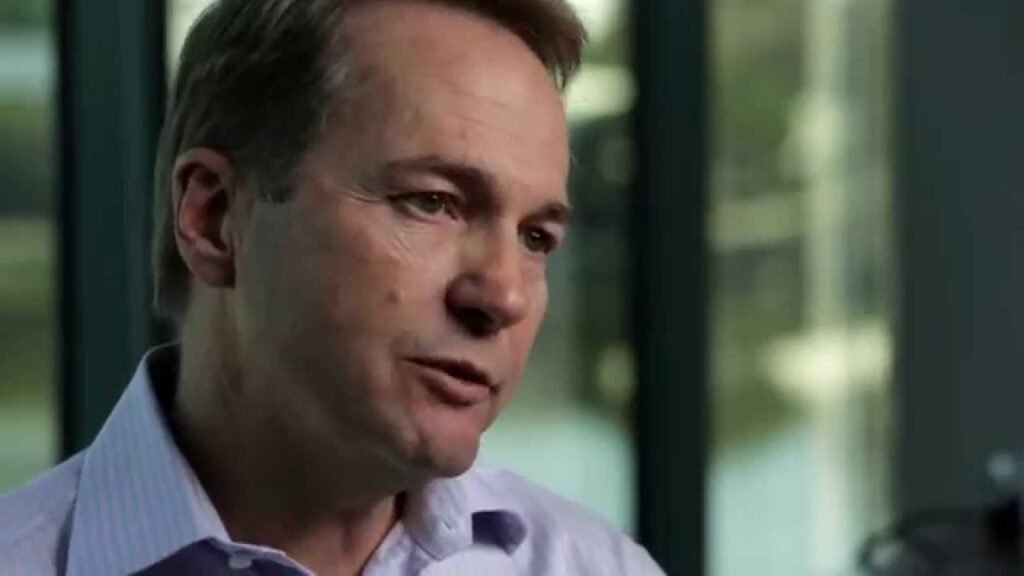A squat, shirtless man opens the door to a nondescript commercial unit on the 19th floor of a 25-storey building in Hong Kong.
His expression is vacant, a bloated belly hanging over his shorts and flip flops.
Behind him, his wife is cooking rice. Steam billows from the stove, engulfing the cramped, colourless room and raising the humidity to suffocating levels.
The couple are as bemused by our sudden appearance as we are by them. There is no reason in the world why any Westerners would wind up at their door.
But here we are. Somehow, our painstaking investigation into London’s phone-theft epidemic has led us to this: Yongyi Tong International Trading Co, 42 Hung To Road, Kwun Tong.
This is the very building where an iPhone 11 Pro, snatched from the hands of a 41-year-old estate agent on London’s famous Baker Street, has ended up. And it has company.
Last year, around 80,000 smartphones were stolen in London, with an estimated 5,600 – or 7 per cent – ending up in Hong Kong.
The vast majority make their way to the dizzying skyscrapers of Kwun Tong, a business district where traders from across the world gather to buy second-hand phones en masse, before selling them on at healthy profits.

Dylan James (pictured) had his phone snatched by a thief on an e-bike in January 2022. He was able to track the phone’s location to Hong Kong

A worker can be seen in a second-hand phone shop in China. Thousands of stolen phones end up in places like these

Second-hand phones can be seen for sale in China, including several recent iPhone models
The Daily Mail tracked down these Del Boys of the Far East by following stolen devices on an odyssey from the streets of central London and through suburban British warehouses, before landing in the international markets of Dubai, Hong Kong and, ultimately, China.
What we saw was mind-boggling. These desirable gadgets clock up more air miles than the Speaker of the House of Commons and pass through the hands of countless middle-men, thieves, hackers and ‘dealers’. Yet everyone gets a slice of the pie.
Scotland Yard says county lines gangs are now switching from the drugs trade and ordering British youths to snatch thousands of phones.
With the estimated ‘street value’ of devices stolen in the capital alone topping £20million last year, it is no wonder the gangs are changing tack, particularly when the potential punishment pales in comparison.
The victims are the vulnerable teens they recruit for the job, often plucked from council estates. But also, of course, the ordinary Londoners – terrorised by the moped gangs and pickpockets who swipe a phone every 15 minutes on average.
Today, our investigation reveals exactly how, ripped from your hands on a British street, your phone will swiftly appear on the other side of the world. So, who is behind it, and what can be done to stop this tsunami of crime?
Dawn was breaking as Dylan James, 41, strolled down Baker Street in central London.
It was January 2022 and the estate agent was checking his messages on the way to work, scrolling through his iPhone 11 Pro.
That’s when, out of nowhere, a thief on an e-bike veered on to the pavement from behind, snatching the phone out of his hand before hurtling off at speed.
Mr James was able to use Apple’s FindMy tracking app to follow its movements. Ten days later, he was surprised to find the iPhone had come to rest at 42 Hung To Road, Kwun Tong – about 6,000 miles away.
‘It was pinging from this commercial district in Hong Kong,’ said Mr James. ‘It was truly incredible.’
Getting the police to investigate a theft is hard enough, let alone a phone. And if the stolen goods have ended up halfway across the world, forget about it.
But the Daily Mail won’t. We promised to investigate what had happened to Mr James’s phone and many thousands like it, which vanish from British towns and cities – then mysteriously reappear in the teeming streets and workshops of Hong Kong.
It is a sultry summer’s morning when our reporters arrive in Kwun Tong, posing as businessmen seeking a large order of second-hand phones.
Here, shabby concrete office blocks are squeezed into impossibly tight spaces, providing precious shade for the throngs of people making their sweaty way to work.
As we enter the building at 42 Hung To Road, the last known resting place of Mr James’s iPhone, we are greeted by a quizzical, uniformed woman at the reception desk of a marble-clad lobby.
When we explain what we’re after, her suspicions are aroused.
Speaking in Cantonese, she says: ‘Selling second-hand phones is a little bit…’, before tilting her hand from side-to-side in the universal language that means ‘dodgy’.
Nonetheless, she directs us to several units in the building that are in the trade.
Yongyi Tong International is one of the few open for business at this early hour, but the shirtless proprietor doesn’t seem to be the talkative type.
We want some cheap phones that work in the UK, we explain, and understand that this is the place to get them.

Feiyang building in Shenzhen, China, where thousands of stolen phones eventually come to rest

E-scooters and e-bikes are being driven by brazen phone snatchers who steal from unassuming members of the public
The man tells us he is ‘out of stock’, but if we place an order, he could ship a batch back to the UK.
He tells us nothing of his suppliers (although when later contacted by the Mail, Yongyi insisted its phones were legally obtained).
And, given that Yongyi is just one of around half a dozen units at 42 Hung To Road selling second-hand phones, there is no sure-fire way of knowing which one contains Mr James’s phone.
It’s a needle in a haystack. But that’s nothing compared to what we find just a little further down the road.
At 1 Hung To Road is a 31-storey building, home to 130 businesses, at least a third of which are used mobile-phone wholesalers.
This place is notorious. Online messaging boards are inundated with people from the UK and US posting screenshots of their Find My App showing their stolen phones have ended up at 1 Hung To Road.
Even the smallest shops or units here have thousands of second-hand phones in stock, with some of the larger ones offering hundreds of thousands of devices wholesale.
On the day the Mail visited, there were easily more than one million used phones of varying origin, condition, brand and model for sale around the building.

Boxes of potentially stolen phones at the address in 1 Hung To Road, where multiple stolen devices have been tracked to

This CCTV shows the shocking moment a woman was thrown to the ground as thieves grabbed her mobile phone from her in King’s Road, London

The pair responsible for the brazen daylight attack then ran off past the other boutiques
Some units were clearly fly-by-night operations – budget-looking businesses cramming boxes of phones into little more than 100 square feet of office space.
One man was lying in his ‘shop’ on a dirty mattress.
Others appeared to be doing well from their enterprise. One unit had neon signs leading buyers to high tables displaying second hand iPhones, mimicking a high street Apple store.
Many second-hand phone sales are legitimate. Apple and other manufacturers use markets such as this to off-load customer returns.
But most of the sellers we find are cagey and bristle when asked about their supply lines.
One wholesaler does claim to have sourced some from the UK and leads us to a box of around 30 iPhones.
As we continue around the labyrinth of dealerships – now beginning to blend into one – we notice that boxes are often marked as ‘iCloud locked’ and ‘unlocked’, or ‘has ID’ and ‘no ID’.
Buyers say that this differentiates between phones that had been remotely locked through the FindMy app – most likely following a theft.

Mr James was walking down Baker Street (Underground station above) when his phone was snatched by a thief on an e-bike

Inside a shopping mall in China where numerous vendors sell cheap second-hand phones

In this image, a masked gang riding e-bikes were seen stealing a phone from a woman at a bus stop
This suggests that, at a glance, there could be hundreds, if not thousands, of phones snatched from the streets of London spread across this one complex alone.
But why are they all here?
Demand for second-hand smartphones is high in emerging markets for the simple reason that the locals don’t have the money to buy them new – particularly if hefty import duties are applied.
It’s also the case, however, that many Asian, African and Middle Eastern countries sit beyond the reach of the GSMA – the Global Systems for Mobile Communications Association – an organisation that provides network blocking if a phone is reported stolen.
Around 80 per cent of phones stolen in London end up abroad. Find My data suggests the most common destinations are Algeria and China as well as Hong Kong. With its simple customs system and history of open trade, the ex-British territory is an ideal midpoint in the supply chain.
Merchants from across the developing world come to Hung To Road to buy second-hand phones in bulk.
A used iPhone 16 Pro – the latest model – is available here for as little as £500. Buying a new one in the UK would cost you double that.
The Mail met a group of traders from India, who said they came to Kwun Tong every quarter to order hundreds of devices for resale at their second-hand phone shop.

Staff in a mobile phone repair shop in China working on phones that may have been snatched from the streets of London
They explained that the margins on resale were small, so profits relied on picking out the best-value models from the plethora of options available – and buying in volume.
A trader from West Africa leaving the building with two boxes of phones hinted at another cog in the chain.
‘It is impossible to sell locked phones,’ he explained. ‘Unless you have the passwords.’
If a phone is locked, it is effectively unusable. So, criminals will go to extreme lengths to unlock one.
Foreign resellers will often use local ‘hackers-for-hire’ for a fee of around £40 a phone, but many at home and abroad are not afraid to deploy more rudimentary methods.

A sign in a phone shop in China lists the array of products available, including iPhones
‘Phishing’ attempts (where victims are duped into parting with passwords and other sensitive data) are common, while death threats to the original owners are often reported to police.
The rewards are significant. A thief who stole a locked iPhone 15 in London, for example, could sell it to an initial handler for about £100. This could then be sold on to a smuggler for £200, who will try to flog it to a reseller abroad for around £400.
But if anyone in this supply chain can find a way to unlock the device, they could double their money, as the resale value of the phone will rocket.
In many cases a phone is impregnable. Yet there is an answer for this, too: chopping it up for parts.
A hop, skip and a jump over the Hong Kong border lies the city of Shenzhen. Once a small fishing town, today it is known as ‘the Silicon Valley of China’.
At its southernmost point lies the subdistrict of Huaqiangbei, home to sprawling malls selling every bit of second-hand tech under the sun.
Stolen phones end up here in vast numbers because traders can find buyers for every component of a device, from screens and circuit boards to chips and copper, once it is stripped for parts.
Resourceful merchants will even buy unwanted plastic to melt down and use in bottles, while some phones go to recycling plants, where batteries and metal elements are re-used.
As with the local cuisine, not a shred of the ‘beast’ will go to waste. Locked or unlocked, there is money to be made from stolen phones.
Most of the traders to be found at Hung To Road are from Shenzhen. One Chinese merchant told the Mail that she goes to Hung To Road every week to buy thousands of phones to bring back across the border.

This terrifying phone snatch in Marylebone, central London, shows a thief taking a woman’s phone as he zooms past on an e-bike

She was seen making an attempt to pursue the thief as he clutched her phone in his hand
The vast electronics malls of Huaqiangbei bear little resemblance to the sleek, futuristic architecture of the real Silicon Valley. The Feiyang Times building, the primary market for second-hand phones, is a drab, 29-storey tower block plastered with Chinese propaganda.
On the fourth floor, frenzied trading takes place under a banner carrying a quote from President Xi Jinping: ‘The Chinese race is one that is diligent in labour and skilled in creation. It is through labour and creation that we achieved historical glory.’
There are also clear signs that the authorities are alert to what is really going on here.
Another banner warns of ‘strict crackdowns on smuggling and illegal activities’, while stalls bear signs that declare a refusal ‘to recycle used phones with ID password locks, activation locks, and those of unknown origin’.
Perhaps it is just for show.
Last year, the Daily Mail’s Associate Features Editor, Clara Gaspar, saw that her iPhone 15 had turned up at the World Trade Plaza, a skyscraper housing a giant mall in Shenzhen, after her pocket had been picked in Kensington, central London.
And only last month, another iPhone 15, this time belonging to our Executive Science Editor, Xantha Leatham, had been taken to Dongguan, a city north of Shenzhen.
Remarkably, this was after it had initially been shipped to a sleek-looking second-hand phone store in Dubai – although staff here denied having any UK phones when approached by the Mail.
So, if you’ve ever wondered why you suddenly can’t walk around the West End without seeing a moped thief cruising the streets for a mobile to snatch, the answer lies thousands of miles away, in the explosion of these bewildering markets of used phone bartering.
Metropolitan Police Commander James Conway says phone theft is surging in London today because foreign demand has made it profitable again.

Metropolitan Police Commander James Conway (pictured) says foreign demand is behind the increase in phone snatching
Scotland Yard has made it clear that, while it is ramping up enforcement, it cannot arrest its way out of the problem.
Police chiefs and ministers are calling on cloud providers – Apple and Google – to build a ‘kill switch’ into smartphones that would stop them connecting to cloud services if reported stolen.
This would perform the same function as the GSMA in parts of the world without coverage, destroying the resale market.
But there is growing frustration that, after 18 months of discussions, the tech giants are still mulling the proposals over – and are yet to act.
Meanwhile, it is the rest of us who suffer.
Xantha’s story
The Mail’s Executive Science Editor Xantha Leatham writes: Anyone who has ever had a phone stolen will be familiar with the gut-wrenching moment you realise it’s gone.
One minute you’ve got your friends, family, photos and emails at your fingertips and the next you feel completely cut-off from the world.
It happened to me recently, at a festival in Brighton when my iPhone 15 was taken out of my handbag from right under my nose.
The thieves timed it perfectly – it was busy, the main artist was playing and I had my arm around my fiancé, meaning my cross-body handbag had been repositioned out of my sight.
I had no idea anything was amiss until I went to get my phone out to take a picture. Kindhearted festivalgoers started to look on the floor in case it had fallen out of my bag, but I knew it was a lost cause.
Despite being immediately switched off by its captors, my phone’s ‘Find My’ location kept pinging, allowing me to track it for weeks.
It meant I could watch my devices’ epic 8,000-mile journey across the world.
Within two days of being taken, my phone had made its way from Brighton to a Costco car park in Watford, north London.

The Mail’s Executive Science Editor Xantha Leatham had her iPhone 15 taken out of my handbag from right under her nose (Stock Image)
I assumed it would change hands, that the system would be wiped and my monitoring brought to an end.
But nine days later, to my surprise, I spotted it was in Dubai.
Surely, I thought, this would be the end of its travels.
But no – a month later I saw it had reached the Chinese city of Shenzhen.
Having grown up in Hong Kong, I knew there was no getting it back now. The electronics mecca is Ground Zero for the black market in iPhones.
It’s now been more than six weeks since the last location update, and it’s likely reached the end of the road – either being completely wiped or broken down for parts.
What was most concerning about the whole ordeal was the extreme lengths the criminals went to in their attempts to gain access to my phone and its data.
Some of my contacts even received a text claiming that my phone had been ‘found’ and asking them to provide the passcode to reveal the location.
Luckily, I was savvy to the scam – but it was very convincing.
While I can’t help but feel annoyed at myself for allowing my device to be taken, I’m thankful for two things – phone theft insurance and an up-to-date iCloud backup.






